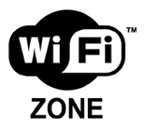
In our blog of October 12, we bemoaned Memphis’ tendency to be cautious and ignore trends until they’re commonplace everywhere else, and then rush to copy them here. The subject on that occasion was Wi-Fi, which is being developed by a number of cities which see it as the backbone for their infrastructure of the future.
About 300 cities are now exploring whether to build their own broadband networks. But Memphis isn’t one of them. It’s enough to make you wish Rusty Hyneman was in the Wi-Fi business.
As we say, broadband access is to the 21st century what the telephone was to the 20th century, but with Elvis still the poster boy for our city marketing, perhaps we can be forgiven for being stuck in the 1950s. Wi-Fi? We’re still excited about Hi-Fi.
Once again, Memphis is trailing the pack in identifying cutting edge issues shaping cities in the decades to come. And if you want to an idea of just how far back in the pack we are, just consider:
• Memphis is the 68th most unwired city in the U.S.
• University of Memphis isn’t even in the top 100 most unwired college campuses.
• Memphis International Airport isn’t even listed in the top 25 most unwired airports.
Those are the verdicts in Intel’s surveys on places with the greatest wireless internet accessibility. In checking into the options for Wi-Fi, the company considered wireless hotspots within each city. According to Intel, accessibility is getting so widespread that it’s now being found in gas stations and bowling alleys.
Apparently, we still don’t have enough coffee shops to chart well. We trail Nashville (# 27), Knoxville (# 52) and Little Rock (# 59). Well, at least we can find some solace that we’ve probably moved up on the list at least one notch. Surely New Orleans isn’t still # 38.
Here’s the top 15 most unwired cities, and it seems more than coincidence that they are also some of the country’s most successful economies over the past 15 years:
1) Seattle-Bellevue-Everett-Tacoma
2) San Francisco-San Jose-Oakland
3) Austin-San Marcos
4) Portland, Oregon-Vancouver, Washington
5) Toledo
6) Atlanta
7) Denver
8) Raleigh-Durham-Chapel Hill
9) Minneapolis-St. Paul
10) Orange County, CA
11) San Diego
12) Chicago
13) Boston
14) Washington, D. C.
15) Colorado Springs
Meanwhile, our universities are left in the dust by their competitors around the U.S. The top 10 unwired campuses are Indiana University in Bloomington; Purdue University in West Lafayette, IN; University of Texas at Austin; Case Western Reserve University in Cleveland; Dartmouth College in Hanover, NH; Carnegie Mellon University in Pittsburgh; University of Akron; Western Michigan University in Kalamazoo; American University in Washington, D.C.; and St. John’s University in New York City.
The list is populated with state universities, but none from the entire state of Tennessee, attesting to devastating effects of budget cuts on the abilities of our institutions of higher education to keep pace at the very time when successful research universities are an indicator of cities’ future economic success.
Somehow, in the face of financial challenges of their own, other states recognize the importance of universities and the economic wisdom of investing in them. Some of these states include Maryland, where the university bearing its name is ranked 23rd; Louisiana, where LSU is ranked 29th; Vermont, whose namesake university is ranked 35th; and Georgia, Pennsylvania and Wyoming whose universities are ranked 64th, 66th, 67th. There are others, but you get the picture. Tennessee’s universities are in a period of quiet decay, and the absence of investments in WI-Fi is just one more piece of evidence.
Meanwhile, our airport prides itself on always doing things right. It’s got its own sources of revenues and enjoys autonomy in how it spends all this public money. In traveling around the country, we all know that no place tends to have Wi-Fi than major airports. And yet, when the survey listed the top 25 unwired airports in the country, Memphis International Airport wasn’t among them.
Here are the top 10 airports — Dallas-Fort Worth International; New York’s LaGuardia International; Atlanta Hartsfield International; Chicago’s O’Hare International; Baltimore/Washington International; Minneapolis/St. Paul International; Seattle-Tacoma International; San Francisco International; Los Angeles International; and Denver International.
Memphis International Airport can’t even get on the list, although Buffalo, Oakland, Cincinnati, Raleigh and Pittsburgh do.
At a time when Memphis needs to be attracting members of the so-called “creative class,” the mobile, young, knowledge workers of the global economy, with progressive images of a city that’s on the move, we once again send the message of a slow-paced, provincial city that’s stuck in time.
Let’s not wait until Wi-Fi invades Covington before we decide we need to invest in it here. We talk a lot these days of how dynamic Memphis is. Let’s prove it.


